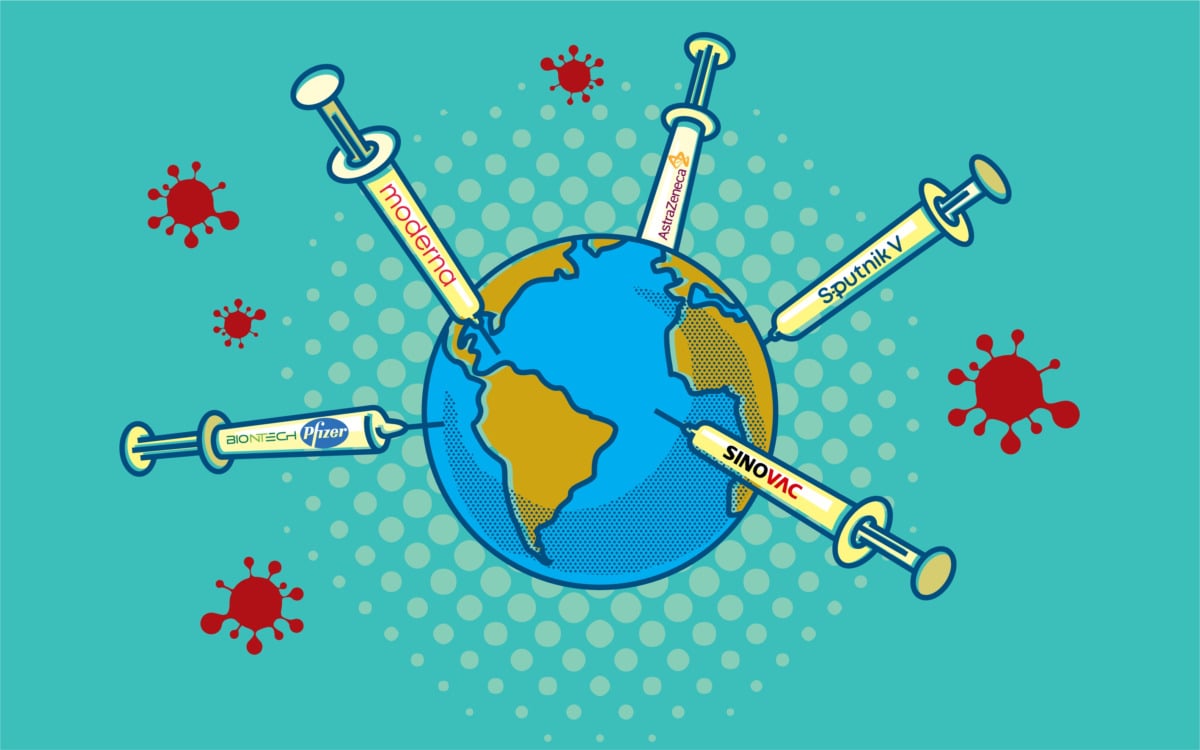Founded in 2008 with only three people in a small laboratory in Milton Park in Oxfordshire, England, Adaptimmune has since expanded into a globally recognized biotech company. Now, with hundreds of staff members, and facilities in both the U.K. and the U.S., the company is pioneering the use of T-cell receptor (TCR)-T therapies to fight cancer. After overcoming several challenges along the way, things are currently looking very promising for Adaptimmune, as it recently made a major breakthrough that could potentially shape the future advancement of cell therapies.
In this article, we take a look at Adaptimmune’s long – and somewhat bumpy – road toward bringing the first TCR-T therapy to the market with a U.S. Food and Drug Administration (FDA) approval that marked several firsts.
Adaptimmune brings first engineered TCR-T therapy to the clinic
By the time Adaptimmune went public in 2015, its first TCR-T therapy was already being tested in clinical trials. And it was performing well – so much so that it attracted the interest of GSK, as the two companies entered into a strategic collaboration and licensing agreement to develop and commercialize Adaptimmune’s lead program. At the time of the agreement, the company’s clinical trials for the program in multiple myeloma, melanoma, sarcoma, and ovarian cancer were generating encouraging results.
The program, which is now known as lete-cel, was developed with Adaptimmune’s TCR engineering technology. The company aims to utilize the body’s T cells to target and destroy cancer cells by using engineered, increased affinity TCRs as a means of strengthening natural patient T cell responses. Lete-cel works by specifically targeting the NY-ESO-1 cancer antigen expressed in a variety of tumors.
However, three years after their initial collaboration, GSK exercised its option to exclusively license the right to research, develop, and commercialize Adaptimmune’s NY-ESO program. The asset was then named GSK3377794 and became GSK’s leading cell therapy. Meanwhile, Adaptimmune put its focus on its other clinical assets, with MAGE-A4 becoming its lead program – a fruitful decision that would ultimately pay dividends.
In the end, the NY-ESO program did not amount to much for GSK. It was included in a 2019 partnership with Lyell Immunopharma, in which the two companies joined forces to develop new technologies to improve cell therapies for cancer patients. But GSK axed the $1 billion-plus pact with Lyell in October 2022 after a strategic review of its pipeline following lackluster data for lete-cel in a phase 1/2 trial of lete-cel in non-small cell lung cancer (NSCLC). In April 2023, GSK handed the rights to the NY-ESO program back to Adaptimmune, along with £30 million ($39 million) and another preclinical TCR-T therapy program called PRAME, which had previously sprung from the initial collaboration between the two companies.
Rocky collaborations: Attracting and losing partnerships with pharma giants
The collaboration with GSK is not the only high-profile partnership that has not exactly gone to plan for Adaptimmune, as the company has attracted several partnerships with big pharma over the years thanks to the potential of its engineered TCR-T platform.
For example, in 2020, Adaptimmune entered into an agreement with Astellas to co-develop and co-commercialize stem-cell derived allogeneic CAR-T and TCR-T therapies. Prior to this agreement, Adaptimmune had already been collaborating with Universal Cells, which is an Astellas company, since 2015 on the development of gene-edited induced pluripotent stem cells iPSC cell lines. But in April 2023, Astellas announced that it would be terminating its 2020 agreement with Adaptimmune after revising its financial forecast.
Furthermore, in April this year, Roche’s Genentech, needing to cut costs, decided to exit its $3 billion partnership with Adaptimmune – a deal that originally came about in 2021 involving off-the-shelf therapies directed to up to five targets, as well as personalized therapies. This almost put Adaptimmune in an extremely difficult financial situation, but thankfully, Belgian biotech Galapagos saved the day a few weeks later, signing a $665 million deal for the rights to Adaptimmune’s preclinical candidate uza-cel, a MAGE-A4 TCR T therapy the company is developing for ovarian cancer. Galapagos, however, wants to take the therapy into head and neck cancer and potentially additional solid tumors further down the line.
The first of its kind: Tecelra receives FDA approval
Although Adaptimmune’s original lead NY-ESO program did not amount to much given the circumstances surrounding the GSK deal, the U.K. biotech had another trick up its sleeve – a MAGE-A4-targeting candidate called afami-cel.
Following positive results from Adaptimmune’s SPEARHEAD-1 study of 44 patients – in which afami-cel provided a 43% overall response rate, with 4.5% seeing the disappearance of their cancer – the FDA decided to grant accelerated approval for afami-cel at the beginning of last month for the treatment of metastatic or unresectable synovial sarcoma.
It is an approval that comes with several firsts: the first engineered cell therapy for a solid tumor, the first new treatment for metastatic or unresectable synovial sarcoma in more than a decade, and the first TCR-T therapy to enter the market. “It’s the first product where we use a lentiviral vector to insert our engineered T-cell receptor into the cell,” added John Lunger, Adaptimmune’s chief patient supply officer, in an interview to Fierce Pharma.
Sarcomas are rare solid tumor cancers that develop in the bones and soft tissues including fat, muscle, nerves and blood vessels, which often affect young adults. As well as the 43% overall response rate provided by afami-cel, the responders also have “about a 70% chance that they’re still alive after two years and that data is still developing,” said Lunger.
As part of the accelerated approval, a confirmatory trial will now be required.
Next steps for Adaptimmune
The Galapagos deal, which included $100 million up front, will now help to fund Adaptimmune’s launch of afami-cel, which is sold under the brand name Tecelra. The list price for the one-time therapy is $727,000, making it the most expensive per-dose cost of any cellular medicine for cancer in the U.S. The figure was “based on the clinical value that it brings to patients” with a “rare type of tumor and with a very high unmet need,” said Cintia Piccina, Adaptimmune’s chief commercial officer, in a Friday conference call with analysts, according to Biopharma Dive. Biopharma Dive also stated that analysts at Mizuho Securities lowered peak annual sales projections for the drug to $174 million amid expectations of “conservative uptake” this year.
Tecelra will only be available at “authorized treatment centers” equipped to administer it, just like other cell therapies on the market. Adaptimmune expects six to 10 will be up and running this year and 30 within two years.
It is fair to say, however, that it has been a long and difficult journey for Adaptimmune. Even after the approval, shares were trading Friday at just over $1 apiece, a fraction of their initial offering price in 2015 and indicative of investor skepticism about Tecelra’s sales potential.
Nonetheless, the approval marks a significant milestone for the 16-year-old company, and there could soon be another approval on the horizon for lete-cel. Adaptimmune estimates the two therapies combined could generate $400 million in peak yearly sales in the U.S. and, over time, their use could be expanded into other cancer indications. But for now, we will just have to wait and see.

















No Comments
Leave a comment Cancel